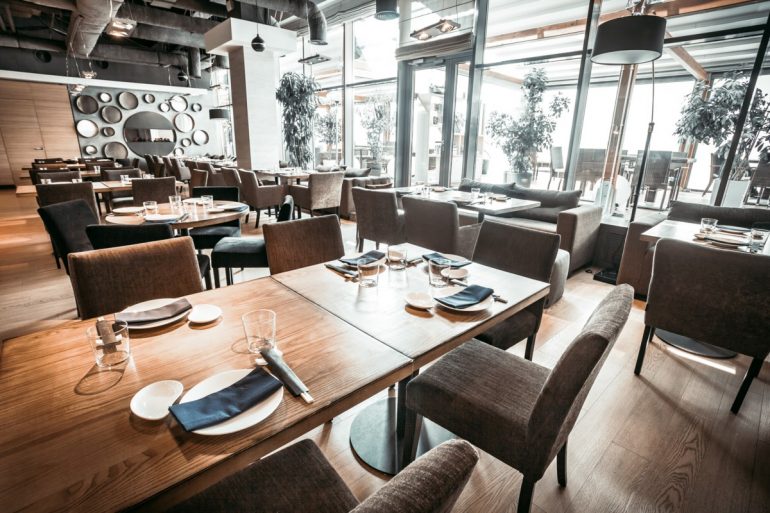Most restaurants in the province are only doing 30 to 50 per cent of their sales compared to the same period last year
Due to the COVID-19 pandemic, there are currently no sit-down restaurants in Nova Scotia that are making a profit.
“While there will be some in profit mode, they would be fast food operations,” Gordon Stewart, the executive director of the Restaurant Association of Nova Scotia, says in an email. “Most operators in Halifax or across Nova Scotia are only doing 30 to 50 per cent of their sales compared to the same period last year.”
Six months after the start of the pandemic in Nova Scotia, businesses and restaurants still suffer from a lack of customers.
In downtown Halifax, business owners worry as conditions fail to improve.
CBC News reported that only about 20 to 25 per cent of the downtown workforce has returned. Without a lunch rush, no happy-hour crowd and a lack of tourism, businesses haven’t had many customers to serve.
“They’re still in very, very diffiworkcult straits,” Patrick Sullivan, president and chief executive officer of the Halifax Chamber of Commerce, tells NEWS 95.7’s The Todd Veinotte Show. “Frankly, they don’t expect to get a lot better as we get into the fall.”
Since the COVID-19 pandemic started, thousands of Nova Scotians have either lost their jobs or have started working from home.
Sullivan says the hospitality industry, including hotels, restaurants and tourist attractions, employs over 30,000 people in the Halifax Regional Municipality.
Still, he doesn’t think the work-from-home model will last long-term. He says humans need social interaction and require office spaces and meetings to create new ideas and brainstorm.
“I do think it’s time for a change,” he says. “It is OK to go back to the office. Government, and I think of the legislature, they’ve had six months to figure it out. It’s now time to get back to the offices and I think people can do it safely. Maybe it means we need a little more mask-wearing inside offices, but I think there is a way to get people back there.”
On top of wanting Nova Scotia’s workforce to return to office spaces, Sullivan says the province should make travel simpler for business travellers.
Currently, Nova Scotia requires all travellers from outside of the Atlantic bubble to self-isolate for 14 days upon arrival. In the rest of the Atlantic provinces, guidelines have since slightly changed.
In New Brunswick, those who work elsewhere in Canada are no longer required to self-isolate when returning home. In Prince Edward Island, workers returning home only need to self-isolate until a COVID-19 test comes back negative. In Newfoundland and Labrador, those who’ve returned home from working elsewhere in Canada can end their self-isolation period after seven days and receiving a negative COVID-19 test.
“I think that there’s clearly a bit of a gap from the folks who are making policy and the speed,” he says.
He says policies were quickly made in March, April and May in support of businesses and workers. But he says he hasn’t heard anything significant from the province since June.
“There were 500,000 room nights last year in Nova Scotia for business travellers,” he says. “Tourism’s over. But we can still get some business travellers to come back and spend money on meals and spend money on hotel rooms.”
In August, a survey showed that most Atlantic Canadians opposed bursting the Atlantic bubble. According to the survey, 77 per cent opposed reopening Atlantic Canada to the rest of the country while 95 per cent opposed opening the Canada-US border.
Atlantic Canadians strongly oppose opening its borders to the rest of Canada within the next month, eliminating the required quarantine period. Atlantic Canadians are even more against opening the Canada/US border. Visit https://t.co/6xnpxSMyp1 to see the news release of findings pic.twitter.com/ekzZOQAVDJ
— Narrative Research (@EveryNarrative) August 13, 2020
Sullivan says he knows he’s enthusiastic about opening the borders, but he’s also focusing on the number of cases reported by each province.
“I don’t want this to be an example of health versus the economy,” he says. “We’re in a health crisis and we’re in an economic crisis — it’s not one or the other. We’re in both crises right now.”
“The pandemic is an impact on all Nova Scotians. I’m not suggesting we should race to get back to where we were, but we’re now wearing masks; we’re now physically distancing. We’re doing things very, very differently than we were doing in February and March.”

Devoted web advocate. Bacon scholar. Internet lover. Passionate twitteraholic. Unable to type with boxing gloves on. Lifelong beer fanatic.





